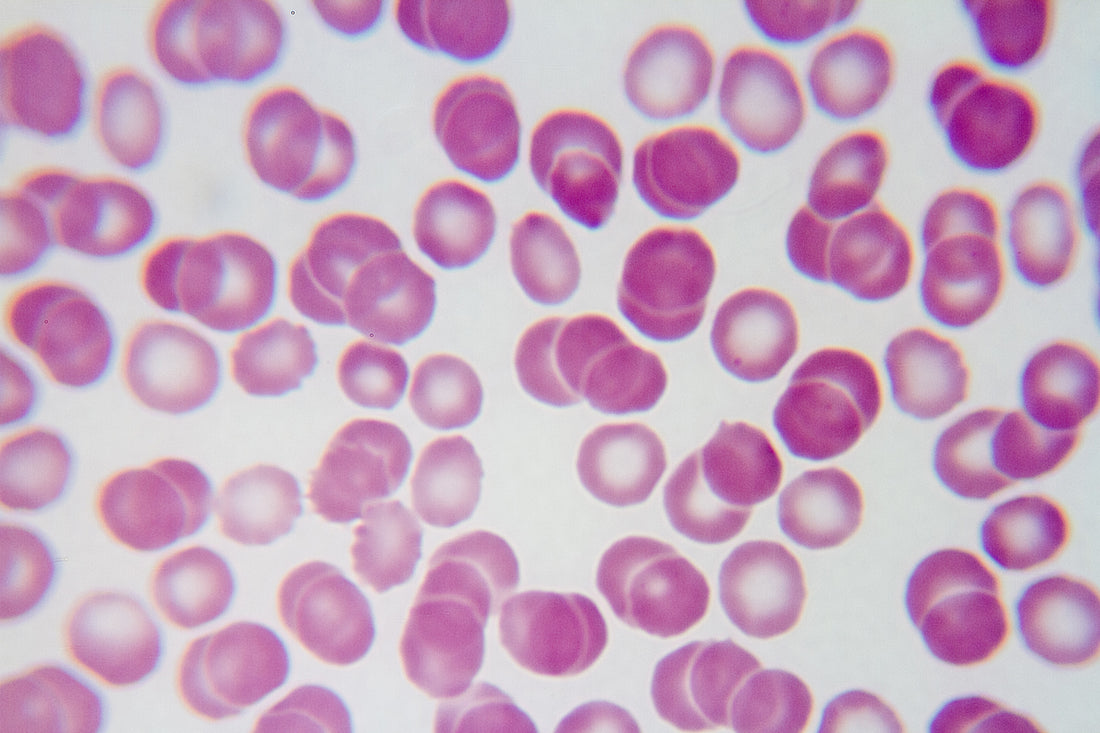
What Are the Effects of Abnormal Blood Clotting on Your Health?
Share
The formation of blood clots is one of the body’s defense mechanisms that is aimed at protecting us against excessive blood loss in the event of injury or accidents. The clotting of the blood at the surface of the skin can arrest blood loss and prevent serious complications like shock. However, when the clots are formed inside the blood vessels, they can clog the arteries and veins resulting in the obstruction to the blood flow. This form of abnormal blood clotting is responsible for the development of several life-threatening disorders including stroke, heart attacks, pulmonary embolism, and deep vein thrombosis.
Studies have revealed that the immune system plays a vital role in regulating the clotting processes. Here is a brief discussion about the effect of abnormal blood clotting on your health and how a healthy immune system would help to correct the underlying abnormalities.
Adverse Effects of Abnormal Blood Clotting
Thrombosis and Cardiovascular Complications

The abnormal functioning of platelets can trigger inflammation in blood vessels as a result of which the immune system might be overstimulated. This could result in the development of autoimmune diseases.
Thrombosis and cardiovascular complications are the common consequences of abnormal blood clotting. Thrombosis may occur due to disruptions in the functions of platelets that play a key role in regulating the process of clot formation.
In normal individuals, platelets help to store and release certain immunoactive molecules and generate microparticles that control the blood clotting processes. Platelets also interact with immune cells and control inflammation thereby preventing abnormal clotting.
The abnormal functioning of platelets can trigger inflammation in blood vessels as a result of which the immune system might be overstimulated. This could result in the development of autoimmune diseases.
The assessment of the role of platelets in supporting immunological functions is expected to provide insights into the most efficient ways to restore the normal blood clotting processes. It could also reduce the risk of autoimmune disorders. Correcting platelet functions would inhibit the formation of abnormal blood clots in the vessels and thus, protect the person against life-threatening diseases like stroke, pulmonary embolism, and heart attacks.
Coagulation and Innate Immunity

Depending on the location of the clot, the patient may develop cerebrovascular stroke, heart attacks, or deep vein thrombosis.
In some cases, abnormal blood clotting could be linked to the body’s response to infections.
Certain infections can trigger a response that can lead to the coagulation of blood resulting in clot formation.
Depending on the location of the clot, the patient may develop cerebrovascular stroke, heart attacks, or deep vein thrombosis.
Research studies have revealed that it is possible to inhibit abnormal blood clotting or excessive blood coagulation in response to infections by controlling the host damage initiated by the innate immune system.
This response, in turn, is regulated by the downregulation of natural anticoagulants that occur when the body is exposed to infectious pathogens. It is one of the body’s own defense mechanisms to fight infections with minimal risk of abnormal clotting.
Research studies have suggested that improving the functions of the innate immune system could regulate the blood clotting processes. This would help to prevent abnormal blood clotting and protect the person against stroke, heart attacks, and deep vein thrombosis.
Hemostasis Maintenance

Immune cells, in response to the defective self-proteins and foreign proteins, may produce antibodies that can trigger an antigen-antibody interaction resulting in the abnormal coagulation of blood.
Maintaining hemostasis through fibrinolysis and coagulation is achieved by the body through the interaction between the walls of the blood vessels and certain blood components including cells and proteins like coagulation factors, and immunoglobulins.
A deficiency of coagulation factors can result in bleeding disorders. Also, the immune cells, in response to the defective self-proteins and foreign proteins, may produce antibodies that can trigger an antigen-antibody interaction resulting in the abnormal coagulation of blood.
This suggests that patients with immunological dysfunctions are at a higher risk of developing abnormal blood clotting due to which they may develop hemorrhagic diathesis. This could be prevented by restoring the healthy functions of the immune system and platelets such that the body’s hemostasis is maintained through the regulation of both fibrinolysis and coagulation.
Immunity-balancing supplements like BioPro-Plus offer a safe and effective approach for promoting normal immune system functions. BioPro-Plus is formulated keeping in mind the body’s needs to maintain hemostasis. It could promote efficient platelet and immune system functioning thus regulating fibrinolysis and coagulation and preventing clotting and bleeding disorders.
Regular use of BioPro-Plus could help to improve the functions of platelets and prevent abnormal blood clotting processes. This could minimize the risk of diseases like stroke and heart attacks that occur when the clots clog the arteries supplying blood to the vital organs like the brain and heart, respectively.
Interested in This Topic? Learn More Blood Clots:
Blood Clots Guide: Causes, Symptoms and How to Reduce Your Risks
